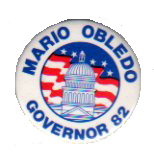The recent passing of Richard Chavez at age 81 is yet another reminder that the leaders of the Mexican American generation, those who came of age during the Great Depression and World War II, are almost gone. Chavez will be forever associated with the United Farm Workers, due to his early leadership and his close association with his brother, UFW founder Cesar Chavez and companion and UFW cofounder Dolores Huerta, both icons of the civil rights movement.
President Barack Obama extended his sympathy to surviving family members: “Michelle and I were saddened to learn of the passing of Richard Estrada Chavez. . . . I was honored to have Richard visit the Oval Office last year on Cesar Chavez Day with other family members, and will never forget the stories they shared.”
Newspapers from coast to coast ran obituaries. The Los Angeles Times reported: “Richard Chavez oversaw construction of the union hall at UFW headquarters in Delano, Calif., and was first director of the National Farm Workers Service Center in 1966, providing social services for farm workers. He also designed the black eagle emblem that is the union’s insignia in 1962, and put up his house as collateral for a loan that helped capitalize the union’s credit union.”
It is a testament to his pioneering work and the increased clout of the Latino community that Secretary of Labor Hilda Solis attended the funeral as the president’s representative. There was also a personal connection. Chavez and Huerta campaigned for Solis in Los Angeles, where she served as a state legislator and then a member of Congress.
For photos from the event see the post by the Bakersfield Californian.
Less remembered is Richard Chavez’s role in community organizing prior to the UFW. This was the subject of my conversation with him. Richard Chavez organized a chapter of the Community Service Organization (CSO) in Kern County in the early 1950s. He campaigned for Edward Roybal in his race to become, in 1954, California’s first Latino lieutenant governor in modern times.


